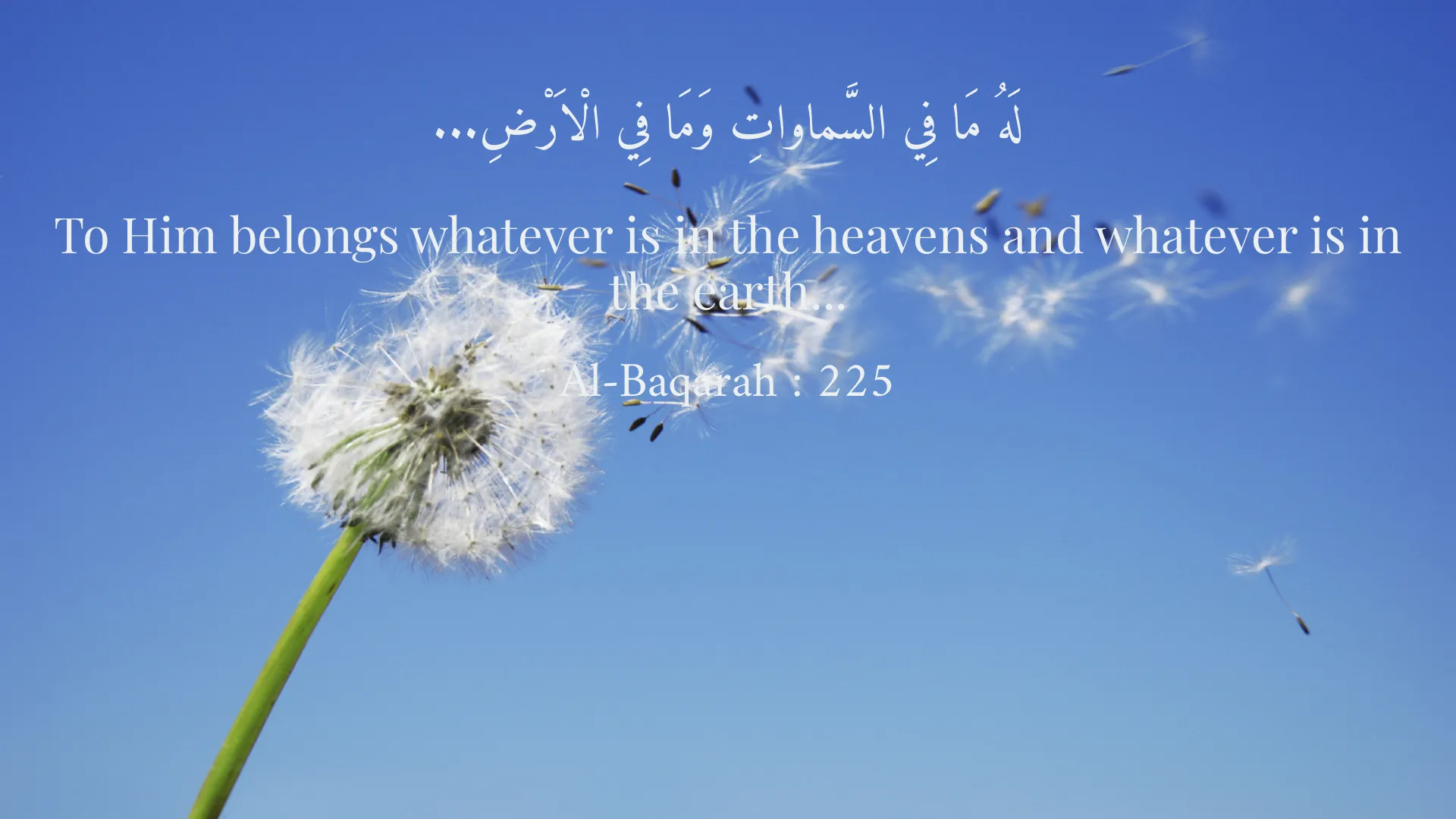Quranic Answer

### Intention and Sincerity in Worship: A Deep Dive into Islamic Teachings In the domain of Islamic theology and ethics, the concepts of intention and sincerity hold paramount significance in determining the quality and virtue of one's actions. These principles form the bedrock of good deeds as per the teachings of the Holy Quran. The phrase, "Actions are judged by intentions," as espoused in the sayings of the Prophet Muhammad (PBUH), encapsulates this essence. Understanding these concepts requires an exploration of various Quranic verses that elucidate the relationship between intention, action, and divine approval. #### The Importance of Intention The Holy Quran emphasizes the need for good intentions in both worship and mundane activities. In Surah Al-Baqarah, verse 225, Allah assures that, "To Him belongs whatever is in the heavens and whatever is in the earth..." This verse establishes the omnipotence of Allah over all worldly possessions and emphasizes the need for devotees to channel their intentions towards Him. It imbues the understanding that all actions, regardless of their nature, should be undertaken with the consciousness of divine oversight. Moving forward, Surah Al-Imran, verse 29, states that Allah has complete knowledge of the intentions harbored inside the hearts of individuals, recognizing that the authenticity of actions is inextricably linked to their underlying motives. This divine acknowledgment serves as a reminder to believers that superficial actions devoid of sincerity will not yield the desired spiritual benefits. The emphasis on intention is not merely a formalistic requirement; rather, it underscores the ethical responsibility of individuals to cultivate inner purity in every sphere of life. #### Actions Must Align with Divine Commands However, mere intention is insufficient without the accompanying action that reflects those good intentions. Surah Al-Ma'idah, verse 27, further clarifies this sentiment: "And whoever is grateful, his gratitude is only for the benefit of himself..." This verse illustrates that gratitude, as a manifestation of good intention, must translate into tangible actions that are appreciatively aligned with Allah's commands. It posits a dual requirement: intention must be wedded with action, and both must conform to the moral directives laid down in Islamic teachings. Islam promotes a holistic approach whereby intentions are rooted in faith and actions are executed in a manner that is ethical and righteous. The relationship between intention and actions suggests that they coalesce to form the essence of virtuous conduct. The Quranic injunctions prompt believers to act judiciously, ensuring that their deeds not only stem from good intentions but also conform to the guidelines set forth by divine revelations. #### Imam Ali (AS) on Intentions The profound wisdom of Imam Ali (AS) further complements this discourse on intention and action. He famously articulated, "The most important thing in action is the intention of the doer..." This quote highlights the necessity for conscious engagement in our actions, thus advocating for a thoughtful and contemplative approach to our obligations. Imam Ali's insights remind us that the weight of our deeds is not just dependent on their nature but significantly influenced by the motivations propelling them. The historical and spiritual context in which Imam Ali lived demonstrates the challenges faced in ensuring that intentions remain pure and that actions are executed in accordance with divine expectations. His life serves as a guiding light, showcasing how unwavering intention, combined with diligent effort, can lead to a more fulfilling spiritual existence. #### The Practical Implication of Good Intentions Understanding the profound relationship between intention and action has practical implications for Muslims in their everyday lives. It necessitates reflecting on our motivations for performing acts of worship or day-to-day interactions. Whether it is a simple act of charity or participation in communal prayers, individuals are encouraged to reflect upon their intentions. This practice can enhance the spiritual value of everyday activities, transforming mundane tasks into acts of worship. Before embarking on an action, a Muslim might ask, "Is my intention for this action purely for the sake of Allah? Am I seeking His pleasure or some form of worldly recognition?" Such self-reflection is integral in aligning one's deeds with the noble objectives established by the Quran and Hadith. #### Conclusion In conclusion, while the concepts of intention and sincerity are foundational in the pursuit of good deeds, it is critical to recognize that they cannot exist in isolation. The Holy Quran, through various verses, insists that genuine intentions must translate into actions that reflect divine ordinances. As stated by Imam Ali (AS), the core of any action is the intention behind it. Therefore, as believers navigate their spiritual journeys, it becomes imperative that they maintain a conscious awareness of their intentions, ensuring that each action aligns with the divine framework laid out in Islamic teachings. This pursuit of intentional and sincere action is vital not only to achieve spiritual excellence but also to foster a community grounded in ethical values and divine consciousness.
Related Verses
لَهُ مَا فِي السَّماواتِ وَمَا فِي الْاَرْضِ...
To Him belongs whatever is in the heavens and whatever is in the earth...
Al-Baqarah : 225
قُلْ إِن تُخْفُوا مَا فِي سُدُورِكُمْ أَوْ تُبْدُوهُ يَعْلَمْهُ اللَّهُ...
Say, 'If you conceal what is within yourselves or reveal it, Allah knows it...'
Al-Imran : 29
وَمَنْ يَكُ شَكُورًا فَإِنَّمَا يَشْكُرُ لِنَفْسِهِ...
And whoever is grateful, his gratitude is only for the benefit of himself...
Al-Ma'idah : 27
Short Story
One day, Adel, an energetic man eager to learn more about religious matters, was reading the Quran. He focused on the verses about intention and realized how important a pure intention and acting upon it is. One day, he decided to engage more in his life with good intentions and to perform righteous deeds. Through this endeavor, he witnessed spiritual growth and felt joy in his heart.